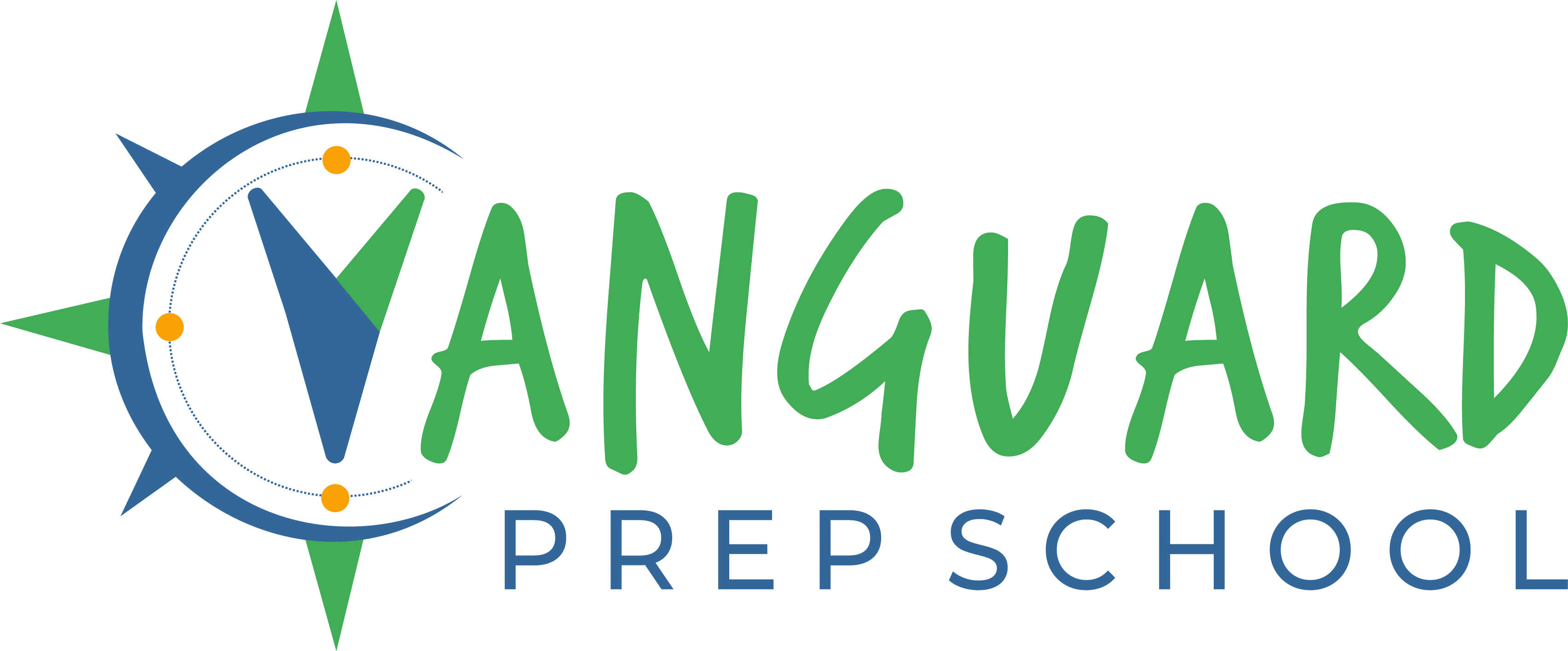Frequently Asked Questions
Please describe your students.
Our student body represents a broad range of academic capacity, from students with significant learning difficulties to those who excel academically. Many of our students experience challenges related to attention deficit hyperactivity disorder, anxiety, depression, bipolar disorder, autism spectrum disorder, or they may have experienced some form of early trauma. They may have difficulty learning due to neurological differences such as dyslexia or dysgraphia. Students come to Vanguard when their current school/educational experience is not working and they are struggling to reach their full potential. Vanguard families have identified that a new kind of learning environment is best for their child.
What will define success for my child at Vanguard?
Vanguard provides an environment where children can excel to the full extent of their capabilities. Being their best version of themselves is what defines success for every Vanguard student. Being their best might mean achieving academic honors and going on to college or it might mean discovering an aptitude for fulfilling work without attending college. We develop customized plans for each student, combining parent guidance with academic and therapeutic insights. Every child’s learning plan includes specific goals to measure academic and therapeutic progress. The team assigned to each student includes teachers, counselors, and therapists experienced in working together and expert in helping students define and achieve their goals.
Who would work with my child at Vanguard?
A team of teachers, clinicians, and therapists, including the Principal of Academics and Student Services, the Principal of Admissions and Clinical Services, and the Director of Family Services, is assigned to every Vanguard student. Therapists and clinicians already working with a student outside of Vanguard also often play a role in this dedicated team. Vanguard develops a highly individualized learning plan for each student integrating academics with social-emotional learning. Each student’s plan includes well-defined goals based on diagnosis, initial testing, current strengths, and areas for growth. The Vanguard team assigned to each student meets weekly to assess progress and discuss any needed plan refinements. And every Vanguard family works closely with their child’s team to achieve results.
How will we know if and when it makes sense for our child to transition from Vanguard back to public school or a more traditional private school?
Each student at Vanguard has an individualized learning plan designed to foster success through integrating academic learning with social-emotional learning. Because each child is unique, so is their time at Vanguard. Many families decide to stay at Vanguard for the entirety of their child’s education, while other families transition after a shorter period of time. This decision is made by each child’s family with support from the Vanguard team.
Some students stay with Vanguard and thrive from preschool through high school and beyond (via the school’s Launch Transition program). High-achieving Vanguard students who continue to benefit from the environment here can take dual-credit college courses online or at a local community college where Vanguard has a partnership. Other students may stay with Vanguard for a shorter time before returning to a more traditional school environment. The decision to stay or go and when is part of an ongoing dialogue with a student’s family, teachers, and clinicians. It is a critically important dialogue that we at Vanguard are always happy to have.
What do Vanguard students typically do after graduation? Do they go to college and what kinds of careers do they pursue?
In High School, Vanguard students can choose to pursue one of two tracks: Track 1 or Track 2. Track 2 includes several vocational courses such as Independent Living and Entrepreneurship, and is designed to prepare students for community college and/or a job. Our students often discover their affinity for a certain kind of work—in effect, a calling—while participating in the Vanguard Launch Transition program. And sometimes a student may decide to switch to Track 1 or Track 2 based on what they learn about themselves during their experience at Vanguard.
Vanguard students have been accepted at the following colleges:
– The University of Texas at Dallas
– University of North Texas
– Texas Woman’s University
– Stephan F. Austin
– University of Texas Austin
– Southern Methodist University
– University of Texas Arlington
– Brookhaven Community College
– Texas State Technical College
– Rhodes College
– Austin College
– St. Edward’s College
– Louisiana State University
